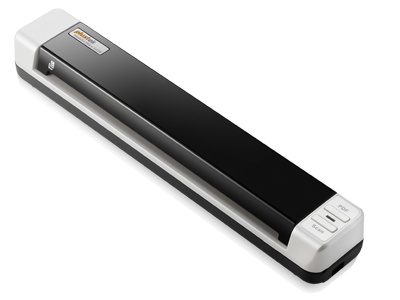Apple Introduces New Xserve–Most Powerful Apple Server Ever
CUPERTINO, California–January 8, 2008–Apple today introduced the new
Xserve, a 1U rack-optimized server that is up to twice as fast as its
predecessor* and includes an unlimited client license for Mac OS X Server
Leopard. Starting at just $2,999, the new Xserve has up to two Quad-Core
3.0 GHz Intel Xeon processors for 8-core performance, a new server
architecture, faster front side buses, faster memory, up to 3TB of internal
storage and two PCI Express 2.0 expansion slots for greater performance and
flexibility.
“With the latest Intel processors and no client access licenses, Xserve
offers unbeatable server performance and value for under $3,000,” said
Philip Schiller, Apple’s senior vice president of Worldwide Product
Marketing. “Xserve’s power, storage and Leopard Server make it ideal for
supporting Mac clients and mixed platform workgroups.”
Xserve is configurable with up to two Quad-Core Intel Xeon 5400 series
processors running up to 3.0 GHz with 12MB of L2 cache per processor and
features a new high-bandwidth hardware architecture, dual-independent 1600
MHz front side buses and up to 32GB of 800 MHz DDR2 ECC FB-DIMM memory for
a 64 percent increase in memory throughput**. Two PCI Express 2.0 expansion
slots provide up to four times the I/O bandwidth of the previous Xserve to
support the latest high-bandwidth expansion cards including multi-channel
4Gb Fibre channel and 10Gb Ethernet cards.
Xserve now includes built-in accelerated graphics to drive up to a 23-inch
Apple Cinema Display and a new front-facing USB 2.0 port. Using Apple’s
Server Monitor, an administrator can remotely turn Xserve on or off and
manage server software from anywhere on the network. Each of Xserve’s three
drive bays can be configured with 73GB or 300GB SAS drives or 80GB and 1TB
SATA drives, providing a mix of high performance and vast storage
capabilities for a wide range of server applications. Apple offers a
hardware RAID card option that delivers hardware RAID levels 0, 1 and 5
with 256MB of cache and an included backup battery for up to 72 hours of
cached data protection. The Xserve RAID card delivers up to 251MB/s RAID 5
performance*** for the most demanding server workloads, without using a
valuable PCI Express expansion slot.
The new Xserve improves energy efficiency with Intel’s 45 nanometer core
microarchitecture technology. The processors draw a maximum consumption of
80W, and drop as low as 4W when idle. Power supplies exceed Energy Star
recommendations from the US Department of Energy and Apple’s thermal
management technology cools the systems efficiently in a wide variety of
environments while reducing power consumption.
Every Xserve ships with a preinstalled, unlimited client edition of Leopard
Server software, offering true 64-bit support, easy-to-use management tools
and support for Mac, Linux and Windows clients. Leopard Server is fully
UNIX compliant and extends Apple’s legendary ease of use by introducing
over 250 new features, including Podcast Producer, the ideal way to
automatically publish podcasts to iTunes or the web; Wiki Server, allowing
people to collaboratively create and modify their shared web sites with
just a few clicks; and iCal Server, the world’s first commercial CalDAV
standard-based calendar server.
Pricing & Availability
The new Xserve is shipping today and will be available through the Apple
Store (www.apple.com) and Apple Authorized Resellers.
The Xserve standard configuration, with a suggested retail price of $2,999
(US), includes:
* a single 64-bit 2.8 GHz Quad-Core Xeon processor with 12MB of L2 cache
and a 1600 Mhz front side bus;
* 2GB of 800 MHz DDR2 ECC FB-DIMM RAM, expandable up to 32GB;
* a single 80GB SATA Apple Drive Module;
* dual Gigabit Ethernet on-board;
* internal graphics;
* two FireWire 800 and three USB 2.0 ports; and
* an unlimited client license for Mac OS X Server version 10.5 Leopard.
In addition to the standard configuration, Xserve offers numerous
build-to-order options and accessories including: dual 2.8 or 3.0 GHz
Quad-Core Intel Xeon processors; 80GB and 1TB 7200 rpm SATA or 73GB or
300GB 15,000rpm SAS Apple Drive Modules; internal Xserve RAID card; Gigabit
Ethernet, 4Gb Fibre Channel and U320 SCSI expansion card options, and a
750W redundant power supply.
*Based on industry-standard SPEC jbb 2005 benchmark tests conducted by
Apple in December 2007 using preproduction 3.0 GHz 8-Core Xserve units and
shipping 3.0 GHz Quad-Core Xserve units. SPEC is a registered trademark of
the Standard Performance Evaluation Corporation (SPEC); see www.spec.org
for more information. Performance tests are conducted using specific
computer systems and reflect the approximate performance of Xserve.
**Testing conducted by Apple in December 2007 using preproduction 3.0 GHz
8-Core Xeon-based Xserve units and shipping 3.0 GHz Quad-Core Xserve units.
All systems were configured with 8GB of RAM. Results are based on the
STREAM v. 5.6 benchmark (www.cs.virginia.edu/stream/ref.html) using OMP
support for multiprocessor-compiled builds. Performance tests are conducted
using specific computer systems and reflect the approximate performance of
Xserve.
***Testing by Apple in December 2007 using preproduction 3.0 GHz 8-core
Xeon-based Xserve units configured with Xserve RAID card. Testing conducted
using Iometer 2006.07.27 with a 30-sec ramp-up, 5-min run, 512KB request
size, and 4 outstanding IOs. System configured with the OS and test volume
on a single RAID volume. Performance tests are conducted using specific
computer systems and reflect the approximate performance of Xserve RAID
Card.
Apple ignited the personal computer revolution in the 1970s with the Apple
II and reinvented the personal computer in the 1980s with the Macintosh.
Today, Apple continues to lead the industry in innovation with its
award-winning computers, OS X operating system and iLife and professional
applications. Apple is also spearheading the digital media revolution with
its iPod portable music and video players and iTunes online store, and has
entered the mobile phone market with its revolutionary iPhone.





